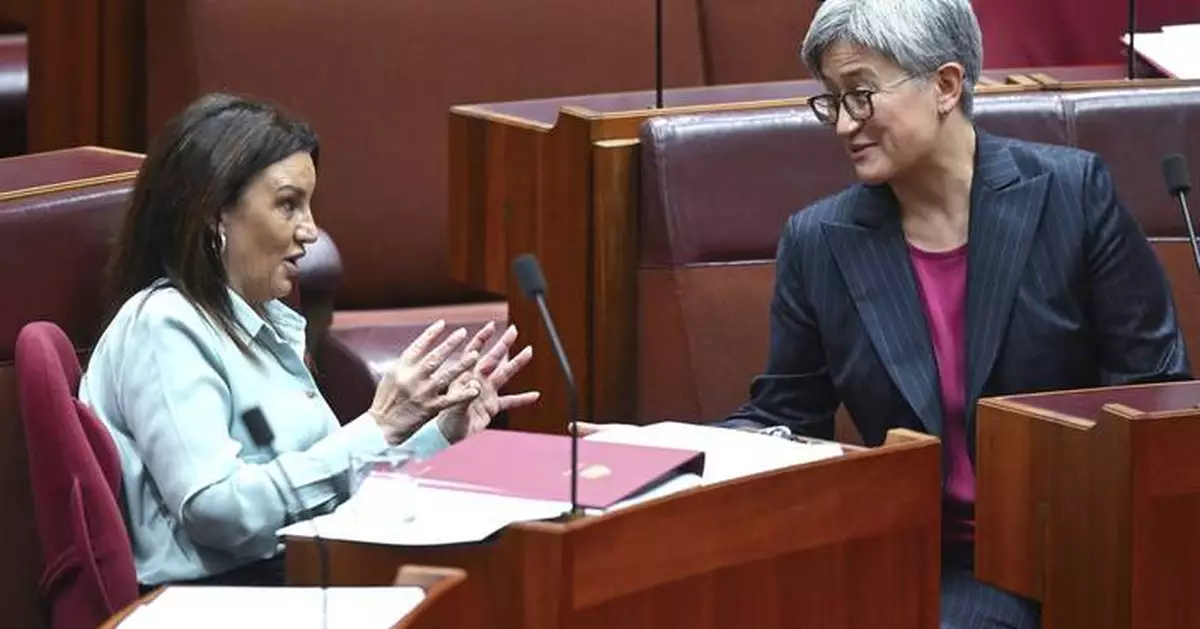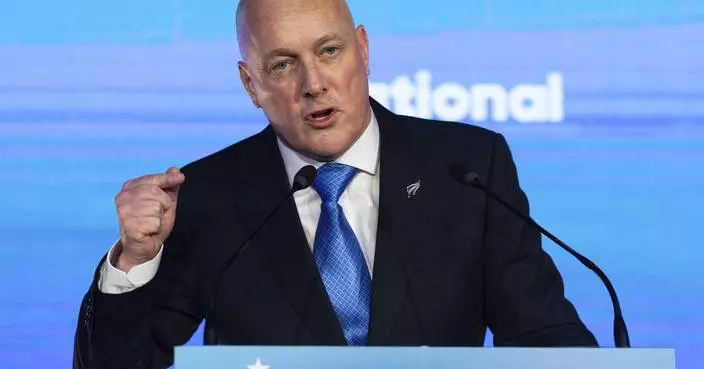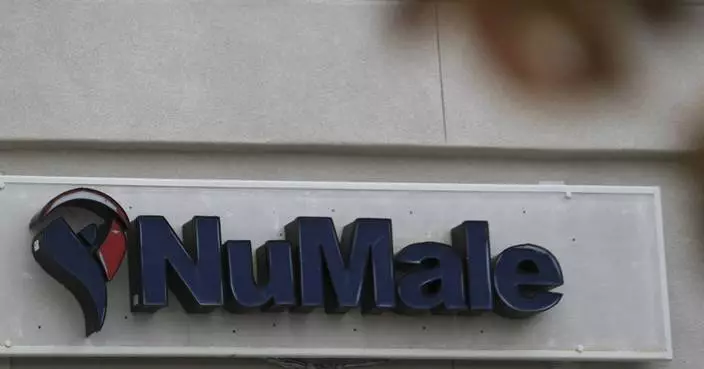MELBOURNE, Australia (AP) — The Australian Senate was debating a ban on children younger than 16 years old from social media Thursday after the House of Representatives overwhelmingly supported the age restriction.
The bill that would make platforms including TikTok, Facebook, Snapchat, Reddit, X and Instagram liable for fines of up to 50 million Australian dollars ($33 million) for systemic failures to prevent young children from holding accounts.
It is likely to be passed by the Senate on Thursday, the Parliament’s final session for the year and potentially the last before elections, which are due within months.
The major parties’ support for the ban all but guarantees the legislation will become law. But many child welfare and mental health advocates are concerned about unintended consequences.
Unaligned Sen. Jacqui Lambie complained about the limited amount of time the government gave the Senate to debate the age restriction, which she described as “undercooked.”
“I thought this was a good idea. A lot of people out there thought it was a good idea until we looked at the detail and, let's be honest, there's no detail,” Lambie told the Senate.
Opposition Sen. Maria Kovacic said the bill was not radical but necessary.
“The core focus of this legislation is simple: It demands that social media companies take reasonable steps to identify and remove underage users from their platforms,” Kovacic told the Senate.
“This is a responsibility these companies should have been fulfilling long ago, but for too long they have shirked these responsibilities in favor of profit,” she added.
Sen. David Shoebridge, from the minor Greens party, said mental health experts agreed that the ban could dangerously isolate many children who used social media to find support.
“This policy will hurt vulnerable young people the most, especially in regional communities and especially the LGBTQI community, by cutting them off,” Shoebridge told the Senate.
The House of Representatives on Wednesday overwhelmingly carried the bill 102 votes to 13.
Once the legislation becomes law, the platforms would have one year to work out how they could implement the ban before penalties are enforced.
The platforms complained that the law would be unworkable, and urged the Senate to delay the vote until at least June next year when a government-commissioned evaluation of age assurance technologies made its report on how young children could be excluded.
Critics argue the government is attempting to convince parents it is protecting their children ahead of general elections due by May. The government hopes that voters will reward it for responding to parents' concerns about their children's addiction to social media. Some argue the legislation could cause more harm than it prevents.
Criticisms include that the legislation was rushed through Parliament without adequate scrutiny, is ineffective, poses privacy risks for all users, and undermines parental authority to make decisions for their children.
Opponents of the bill also argue the ban would isolate children, deprive them of the positive aspects of social media, drive them to the dark web, discourage children too young for social media to report harm and reduce incentives for platforms to improve online safety.
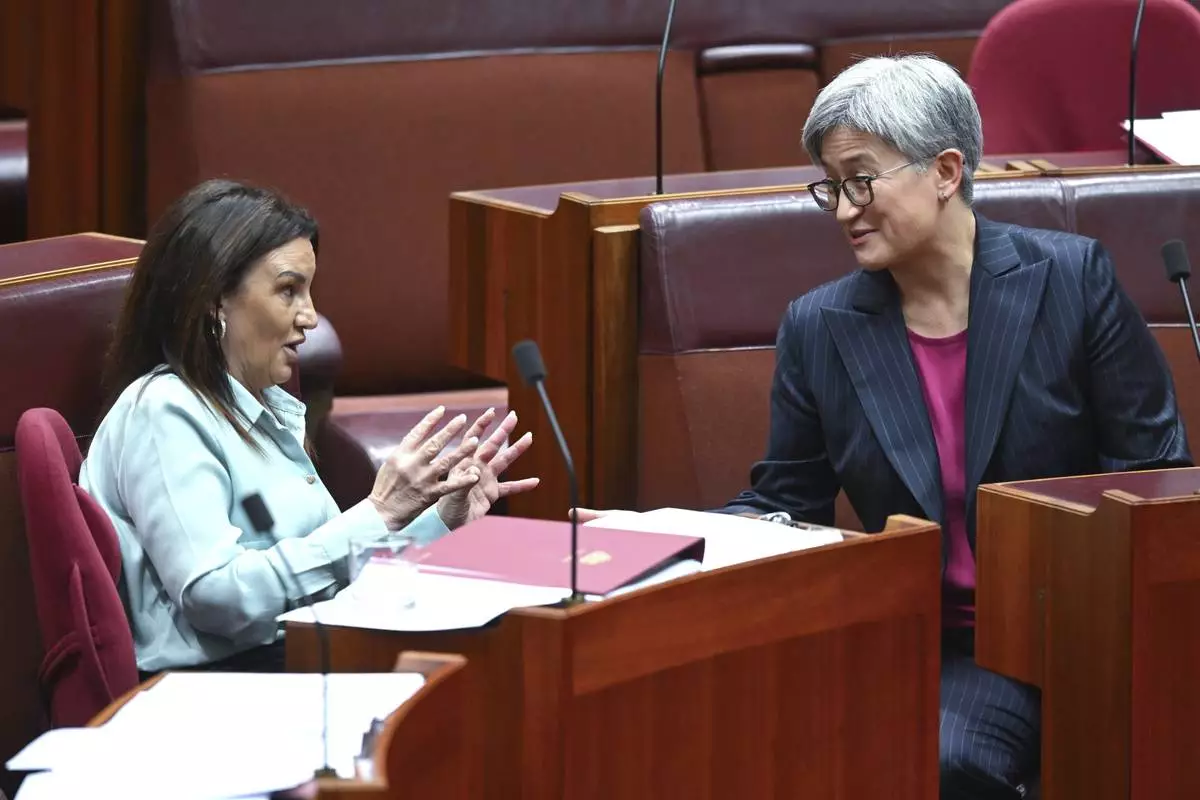
Senator Jacqui Lambie, left, gestures as she speaks to Australian Foreign Minister Penny Wong during debate in the Senate chamber at Parliament House in Canberra, Australia, Thursday, Nov. 28, 2024. (Lukas Coch/AAP Image via AP)
TORONTO (AP) — Canada is already examining possible retaliatory tariffs on certain items from the United States should President-elect Donald Trump follow through on his threat to impose sweeping tariffs on Canadian products, a senior official said Wednesday.
Trump has threatened to impose tariffs on products from Canada and Mexico if the countries don't stop what he called the flow of drugs and migrants across southern and northern borders. He said he would impose a 25% tax on all products entering the U.S. from Canada and Mexico as one of his first executive orders.
But Trump posted Wednesday evening on Truth Social that he had a “wonderful conversation" with new Mexican President Claudia Sheinbaum.
“Mexico will stop people from going to our Southern Border, effective immediately. THIS WILL GO A LONG WAY TOWARD STOPPING THE ILLEGAL INVASION OF THE USA. Thank you!!!” Trump posted.
It wasn't immediately clear if that frees Mexico from the tariff threat.
“She has agreed to stop Migration through Mexico, and into the United States, effectively closing our Southern Border. We also talked about what can be done to stop the massive drug inflow into the United States, and also, U.S. consumption of these drugs,” Trump added.
In Canada, a government official said Canada is preparing for every eventuality and has started thinking about what items to target with tariffs in retaliation. The official stressed no decision has been made. The person spoke on condition of anonymity as they were not authorized to speak publicly.
When Trump imposed higher tariffs during his first term in office, other countries responded with retaliatory tariffs of their own. Canada, for instance, announced billions of new duties in 2018 against the U.S. in a tit-for-tat response to new taxes on Canadian steel and aluminum.
Many of the U.S. products were chosen for their political rather than economic impact. For example, Canada imports $3 million worth of yogurt from the U.S. annually and most comes from one plant in Wisconsin, home state of then-House Speaker Paul Ryan. That product was hit with a 10% duty.
Another product on the list was whiskey, which comes from Tennessee and Kentucky, the latter of which is the home state of then-Republican Senate leader Mitch McConnell.
Trump made the threat Monday while railing against an influx of illegal migrants, even though the numbers at Canadian border pale in comparison to the southern border.
The U.S. Border Patrol made 56,530 arrests at the Mexican border in October alone — and 23,721 arrests at the Canadian one between October 2023 and September 2024.
Canadian officials say lumping Canada in with Mexico is unfair but say they are happy to provide more resources and work with the Trump administration to lower the numbers from Canada. The Canadians are also worried about a influx north of migrants if Trump follows through with his plan for mass deportations.
Trump also railed about fentanyl from Mexico and Canada, even though seizures from the Canadian border pale in comparison to the Mexican border. U.S. customs agents seized 43 pounds of fentanyl at the Canadian border last fiscal year, compared with 21,100 pounds at the Mexican border.
Canadian officials argue their country is not the problem and that tariffs will have severe implications for both countries.
Canada is the top export destination for 36 U.S. states. Nearly $3.6 billion Canadian (US$2.7 billion) worth of goods and services cross the border each day. About 60% of U.S. crude oil imports are from Canada, and 85% of U.S. electricity imports are from Canada. Canada is also the largest foreign supplier of steel, aluminum and uranium to the U.S. and has 34 critical minerals and metals that the Pentagon is eager for and investing in for national security.
Prime Minister Justin Trudeau held a emergency virtual meeting on Wednesday with the leaders of Canada's provinces. He stressed they need to present a united front.
“Our country is facing a significant challenge," Deputy Prime Minister Chrystia Freeland said. “Now is really a moment for us not to squabble amongst ourselves."
The provincial premiers want Trudeau to negotiate a bilateral trade deal with the United States that excludes Mexico.
Sheinbaum, Mexico's president, said earlier Wednesday that her administration is already working up a list of possible retaliatory tariffs “if the situation comes to that.”
She later said she talked to Trump and had “an excellent conversation.”
“We discussed Mexico’s strategy on migration issues, and I told him the caravans are not reaching the northern (U.S.) border, because Mexico is taking care of them,” Sheinbaum wrote in her social media accounts.
“We also talked about reinforcing cooperation on security issues, within the framework of our sovereignty, and the campaign we are carrying out to prevent fentanyl consumption,” she wrote.
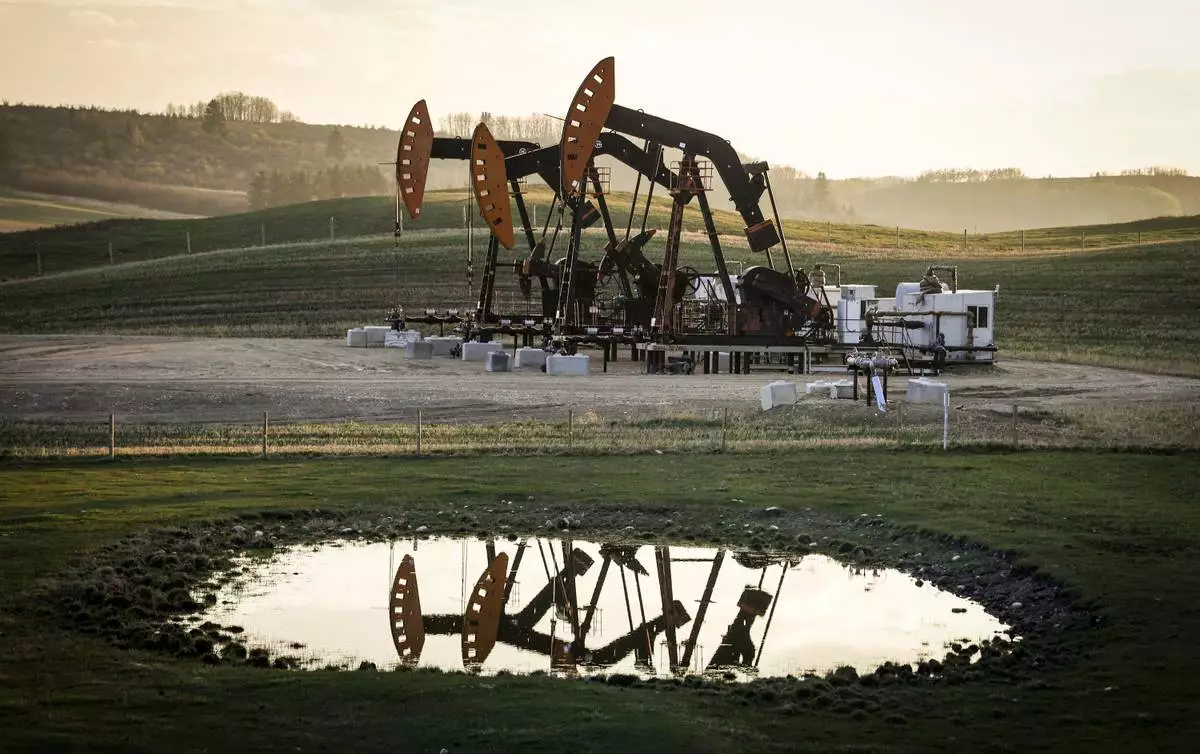
FILE - Pumpjacks draw out oil and gas from well heads as wildfire smoke hangs in the air near Calgary, Alberta, Sunday, May 12, 2024. (Jeff McIntosh/The Canadian Press via AP, File)
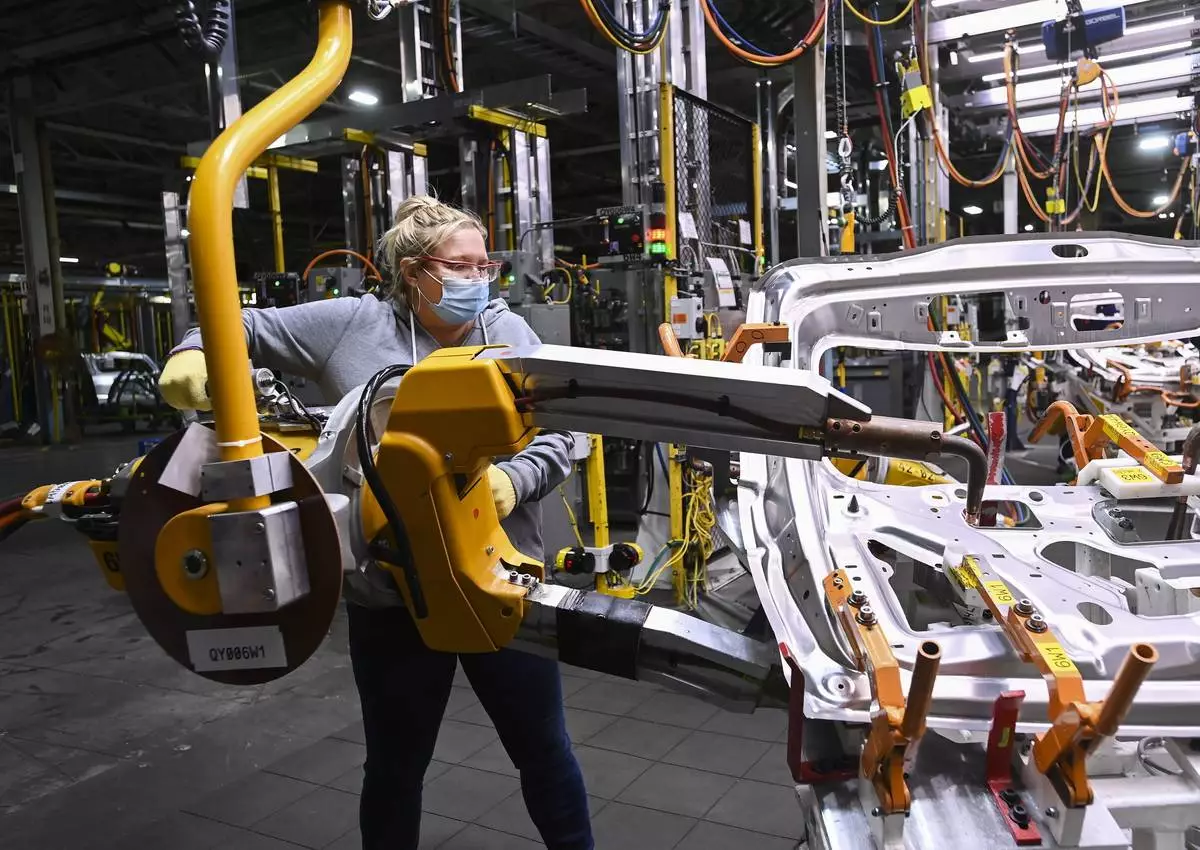
FILE - GM workers use human assistance automation to weld vehicle doors at the General Motors assembly plant during the COVID-19 pandemic in Oshawa, Ontario, March 19, 2021. (Nathan Denette/The Canadian Press via AP, File)
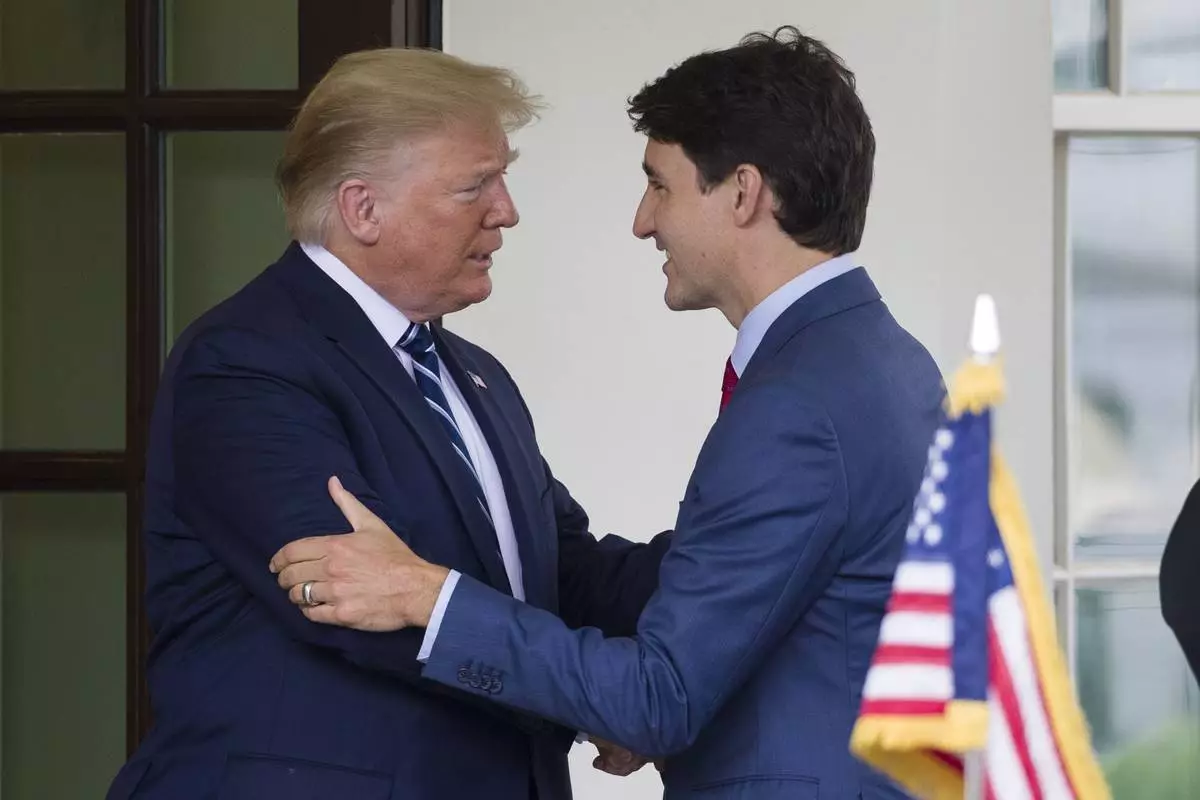
FILE - President Donald Trump greets Canadian Prime Minister Justin Trudeau upon his arrival at the White House, June 20, 2019, in Washington. (AP Photo/Alex Brandon, File)



